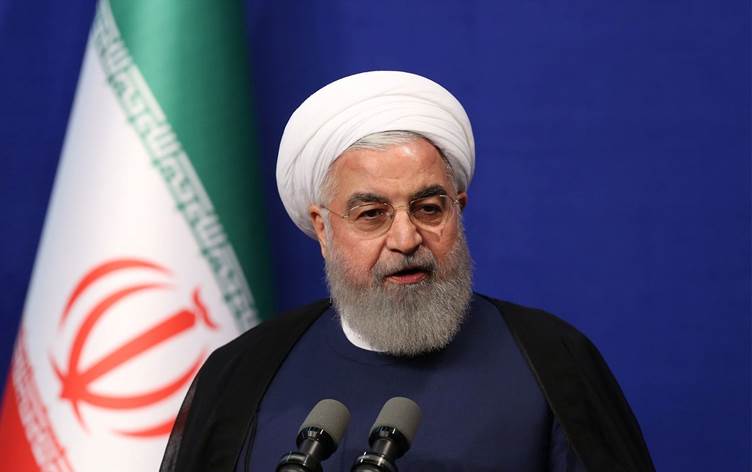Iranian President Hassan Rohani said today that the US has agreed to lift all major economic sanctions on Iran, including those on the banking and oil sectors. He said that only “small details” remain to be thrashed out when delegations return to Vienna next week to continue talks aimed at reviving the 2015 nuclear deal.
“There are still some issues that we are discussing to reach the final agreement… but the main issues — the oil sanctions, the sanctions on petrochemicals, on shipping, on insurance, on the central bank, the banking sector etc… they have agreed to all of these,” Rohani said.
“We have taken the main and biggest step — the main agreement has been reached”, and discussions on those key issues “have been concluded,” he said.
Iran, the US and the five other parties to the deal, known formally as the Joint Comprehensive Plan of Action (JCPOA), concluded a fourth round of negotiations yesterday. Delegates have returned to their respective countries and will reconvene in Vienna next week.
Rohani’s comments reflect some of the more optimistic voices coming out of yesterday’s meeting of the JCPOA Joint Commission. The EU deputy foreign affairs secretary Enrique Mora and Russian envoy to the talks Mikhail Ulyanov said yesterday that an agreement is “shaping up” and “within reach”, respectively.
But Iran’s own deputy foreign minister Abbas Araqchi, who has been leading the country’s delegation in Vienna, struck a more cautious tone. He said that while “a framework or structure” of an agreement has been reached, differences still remain on “some key issues.”
“We cannot yet say that the work has finished, but very good progress has been made, and we are hopeful that next week, when the talks resume, all delegations will have made the necessary decisions [in their capitals] to reach an agreement,” Araqchi said.
The US state department said that the discussions have “really helped to crystallize choices that need to be made by Iran, as well as the US in order to come back into a mutual return to compliance with the JCPOA,” but gave no hints as to how close the parties could be to a deal.
The toughest obstacle has been addressing sanctions that the previous US administration imposed between 2018 and 2020, which the current Washington government sees as “poison pills” designed to sabotage any return to the JCPOA. While Iran insists that all these sanctions need to be removed, the government of President Joe Biden has said it will only remove those that prevent the smooth functioning of the Iranian economy. These would include removing the ‘terrorism’ labels imposed on Iran’s central bank, state-owned NIOC and other oil sector entities, but Washington has serious reservations still over lifting the same level from Iran’s Islamic Revolutionary Guard Corps (IRGC) — a paramilitary force with extensive political and economic interests.
A breakthrough in Vienna should result in the lifting of sanctions that at one point removed more than 2mn b/d of Iranian crude from international markets and pushed the country’s production below 2mn b/d, to the lowest since the beginning of the Iran-Iraq war in the early 1980s. The prospect of Iranian crude returning to the market has pressured oil futures prices in recent days. Front-month Ice Brent fell by as much as 2pc today to just above $65/bl, having moved above $70/bl at the start of the week.
Iran has managed to raise its exports since the start of the year, with as much as 800,000 b/d heading to China in recent months. That outlet may be affected by a recent regulatory change in Beijing, after the handful of Chinese companies prepared to clear Iranian crude through customs ran out of import quotas in late April, and have since been warned against that practice.
Commentary
A normalization of relations between Iran and Us, albeit limited, is very good news for Turkey, which was hurt in a major ay by the sanctions. If these were indeed to be lifted, she can procure oil at a cheaper prices form Iran. But, a bigger benefit is the wealth effect. That is, Iran selling more oil at higher prices to the rest of the world, with some of the proceeds going to Turkish goods and services.
Finally, to the extent, Iran coming onstream limits the rise in oil prices, Turkey’s import bill declines, helping to constrain the current account deficit.
Follow our English language YouTube videos @ REAL TURKEY: https://www.youtube.com/channel/UCKpFJB4GFiNkhmpVZQ_d9Rg
And content at Twitter: @AtillaEng
Facebook: Real Turkey Channel: https://www.facebook.com/realturkeychannel/
